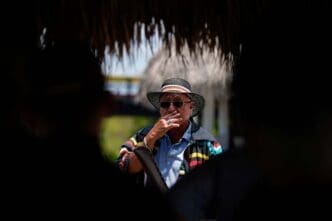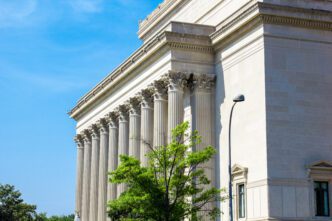As climate change increasingly impacts ecosystems globally, the Miccosukee Tribe of Florida steps up as a proactive force in safeguarding the Everglades—a region integral to their heritage but now endangered by environmental challenges.
The Miccosukee Tribe’s history with the Everglades spans centuries, with members making regular journeys to fish, hunt, and partake in sacred practices. However, the landscape they once knew has transformed drastically. Engineering efforts for urban and agricultural development have shrunk the wetlands to half their original size, disrupting an ecosystem crucial to their way of life.
Tribal elder Michael Frank poignantly observes that the Everglades, though still beautiful, exist now merely as a shadow of their former self. Holding steadfast to their commitment, the Miccosukee have become more collaborative with external entities, participating in initiatives aimed at ecological restoration. Their strategy includes halting oil exploration and championing projects reconnecting the fragmented Everglades ecosystem.
Despite past hesitations to engage with outside entities—a sentiment rooted in a history of violence against Indigenous groups—the tribe now takes a leadership role in conservation efforts. Such involvement includes co-stewardship agreements and utilizing traditional ecological knowledge to influence restoration strategies. However, a recent study criticized ongoing projects for insufficient engagement with the Miccosukee and other Indigenous tribes.
Tribal Chairman Talbert Cypress reflects on the climate extremes faced today—droughts and floods that threaten sacred tree islands and native wildlife. These changes demand action, exemplified by the tribe’s advocacy for the Western Everglades Restoration Project, which promises to remedy water pollution and enhance flood management. Although not without its critics, this initiative is seen by tribal members like Curtis Osceola as pivotal to shaping the future for both the Miccosukee and the Seminole.
The tribe also recently celebrated a significant victory over a proposed wilderness designation for the Big Cypress National Preserve—a decision that would have restricted their access to ancestral lands. Their successful opposition ensured the continuation of their traditional practices and stewardship of these lands. Recognizing the critical role Indigenous people play in ecosystem preservation, the Miccosukee’s efforts are a testament to their enduring connection to the Everglades.
Tribal elders like Frank emphasize the importance of educating the youth in both traditional and modern conservation techniques. Hector Tigertail, at 18, epitomizes this blend of old and new, working within the tribe’s Fish and Wildlife Department to combat invasive species while embodying the hope of possible restoration.
The Miccosukee’s battle to protect the Everglades is intertwined with their cultural identity and survival. Their commitment extends beyond environmental advocacy, representing a broader struggle to safeguard their heritage and community against the backdrop of ongoing environmental and political challenges.
The Miccosukee Tribe’s enduring fight to preserve the Everglades amidst climate change and historical encroachments underscores a larger narrative of resilience. Their story is a powerful example of how Indigenous communities play a pivotal role in environmental stewardship, forging a path forward in the global effort against ecological and cultural degradation.
Source: Local10








